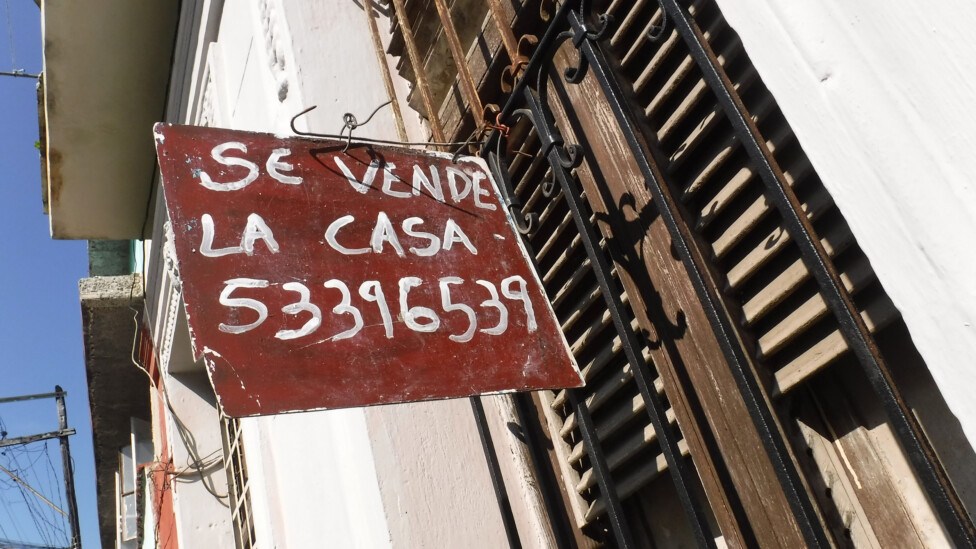
HAVANA TIMES – Ana Iraida sold almost all her belongings so that she could migrate to the United States in search of a better life, including the apartment that saved her from the uncertainty of living in a rental in Cuba, until she departed that is. The country has an unsolved housing deficit.
“I inherited the apartment in Havana from my maternal grandmother, who passed away in 2015. It was small, but comfortable. I sold it for 6,000 USD to pay for documents, formalities and the trip,” this philologist told IPS, who asked for her surname not to be disclosed just like the others who shared their stories.
From the US city of Houston, where she now lives, the young woman says that she “was able to get another 4,000 USD”, thanks to loans from friends. I arrived in Nicaragua in December 2022, and I traveled by land from there to the US border.”
Ana Iraida said that she felt “lucky” to have a home, “furnished and in good condition,” which defrayed her expenses. She said that others “have it harder because they don’t have their own home.”
“It’s getting very difficult to sell, because lots of people want to migrate, and they are practically “giving their houses away.” There is also a shortage of foreign currency, so a person with thousands of dollars prefers to use them to leave the country”, said Elisa.
In recent years, migration from Cuba surged amidst a more severe economic crisis on the island, intensified by COVID-19, a harsher US embargo, partial dollarization of the economy, a steep drop in the purchasing power of wages and pensions, shortages of basic essentials and inflation.
Mistakes and delays in implementing reforms to modernize the country also played a role, as well as the inefficient currency reform implemented in January 2021.
In 2022, in this country of 11 million inhabitants, the exodus led to approximately 250,000 people leaving for the US, the main recipient of Cuban migrants, as they are only separated by 90 nautical miles (167 kms).
In order to halt the migration wave, the US Government extended a program of humanitarian visas for temporary residence, known as “parole” on January 5th, to people from Cuba, Nicaragua and Haiti. The program was similar to the one implemented in October 2022 for Venezuelans, and for other nationalities in the past.
Up until late August, over 47,000 Cubans had been granted this humanitarian visa, 45,000 having already made the journey, according to US Customs and Border Protection.
One of the requirements for this temporary residence visa is having a sponsor with US nationality, citizenship or any other legal status, as well as having the means to support the person or people benefitting from the parole program.

In exchange (for parole) or for sale
Within this landscape, having your own home can also be an opportunity for entire families to leave.
“People are swapping their homes for parole. A few weeks ago, I facilitated the exchange of a house for five paroles to the US. In another case, nine people benefitted from the exchange of a house in Miramar (a well-to-do neighborhood in western Havana),” said Damian, a historian who runs his own home buying/selling business, which he charges a commission for.
Damian explained to IPS that “residents in the US are asking for 10,000 to 12,000 USD to be a sponsor for parole. The number of people they commit to su


